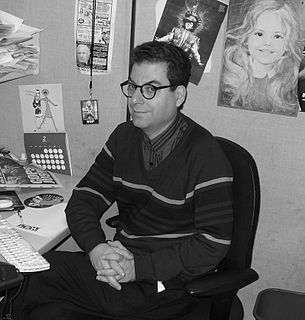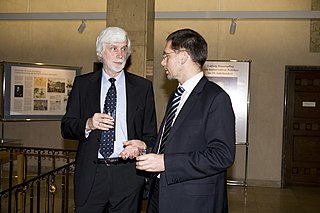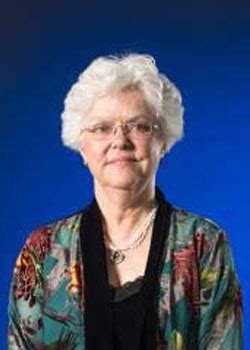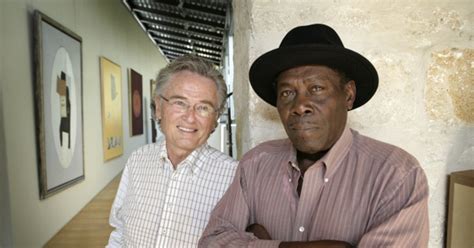A Quote by E. M. Forster
The businessman who assumes that his life is everything, and the mystic who asserts that it is nothing, fail, on this side and on that, to hit the truth. ‘Yes, I see, dear; it’s about half-way between,’ Aunt Juley had hazarded in earlier years. No; truth, being alive, was not halfway between anything. It was only to be found by continuous excursions into either realm, and though proportion is the final secret, to espouse it at the outset is to ensure sterility.
Related Quotes
There are two threats to reason, the opinion that one knows the truth about the most important things and the opinion that there is no truth about them. Both of these opinions are fatal to philosophy; the first asserts that the quest for truth is unnecessary, while the second asserts that it is impossible. The Socratic knowledge of ignorance, which I take to be the beginning point of all philosophy, defines the sensible middle ground between two extremes.
Everything Tolstoy wrote is precious, but I found this final statement of the truth about life as he had come to understand it particularly beautiful and moving. 'That is what I have wanted to say to you, my brothers. Before I died.' So he concludes, giving one a vivid sense of the old man, pen in hand and bent over the paper, his forehead wrinkled into a look of puzzlement very characteristic of him, as though he were perpetually wondering how others could fail to see what was to him so clear - that the law of love explained all mysteries and invalidated all other laws.
Not the violent conflict between parts of the truth, but the quiet suppression of half of it, is the formidable evil; there is always hope when people are forced to listen to both sides; it is when they attend to only one that errors harden into prejudices, and truth itself ceases to have the effect of truth, by being exaggerated into falsehood.
Truth and falsity, indeed understanding, is not necessarily something purely intellectual, remote from feelings and attitudes. ... It is in the total conduct of men rather than in their statements that truth or falsehood lives, more in what a man does, in his real reaction to other men and to things, in his will to do them justice, to live at one with them. Here lies the inner connection between truth and justice. In the realm of behavior and action, the problem recurs as to the difference between piece and part.
Tessa was only half way down the corridor when they caught up to her -Will and Jem, walking on either side of her. "you didn't really think we weren't going to come along, did you?" Will asked, raising his hand and letting his witchlight fare up between his fingers, lighting the corridor to daylight brightness. Charlotte, hurrying along ahead of them, turned and frowned, but said nothing. "I know you can't leave anything well alone," Tessa replied, looking straight ahead. "But I though better of Jem." "Where Will goes, I go," Jem said good-naturedly. "And besides, I'm as curious as he is.
The Bible is a wonderful book. It is the truth about the Truth. It is not the Truth. A sermon taken from the Bible can be a wonderful thing to hear. It is the truth about the truth about the truth. But it is not the truth. There have been many books written about the things contained in the Bible. I have written some myself. They can be quite wonderful to read. They are the truth about the truth about truth about the Truth. But they are NOT the Truth. Only Jesus Christ is the Truth. Sometimes the Truth can be drowned in a multitude of words.
We don't know how large a proportion of the significant evidence about the universe is excluded by science. Perhaps hardly any. Perhaps so great a proportion that any body of knowledge which excludes it is hardly more than a caricature. Perhaps something in between - so that science finds truth but not the whole truth.
What truth? You see where truth is, and where untruth is, but I seem to have lost my sight and see nothing. You boldly settle all important questions, but tell me, dear, isn't it because you're young, because you haven't had time to suffer till you settled a single one of your questions? You boldly look forward, isn't it because you cannot foresee or expect anything terrible, because so far life has been hidden from your young eyes? You are bolder, more honest, deeper than we are, but think only, be just a little magnanimous, and have mercy on me.
an Autobiography is the truest of all books; for while it inevitably consists mainly of extinctions of the truth, shirkings of the truth, partial revealments of the truth, with hardly an instance of plain straight truth, the remorseless truth is there, between the lines, where the author-cat is raking dust upon it which hides from the disinterested spectator neither it nor its smell... the result being that the reader knows the author in spite of his wily diligences.





































